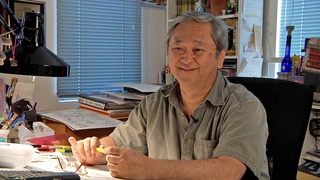Interviews
Death of sister in October 1942
I*: When your sister died, which was I think in October of 1942, were you in Amache [concentration camp AKA Granada concentration camp] by that point or were you still in Santa Anita [assembly center]?
Amache.
I: Now when your family went to Santa Anita, your sister did not join you because she was in sanitarium.
That's right.
I: And she had tuberculosis.
Yeah.
I: Do you think that the internment of your family had any effect on your sister's health?
Definitely. We could have taken care of her privately. She was moved to a facility where I think they didn't care.
I: When you learned about your sister's death, was that something that was expected? Did the family expect her to die when she did?
No.
I: What type of effect did it [her death] have on your family, on your parents?
Well, we were in Granada [concentration camp]. And so my father was stoic and my mother, my mother, mother, fell apart.
*"I" indicates an interviewer (Daniel H. Inouye).
Date: March 2, 2006
Location: New York, United States
Interviewer: Daniel H. Inouye
Contributed by: Asian/ Pacific/ American Studies Program and Institute, Department of Social and Cultural Analysis, New York University.
Explore More Videos


Going to camp with the Terminal Island people
(1927-2010) Political Activist


Interned at age fifteen, I saw camp as an adventure
(1927-2010) Political Activist

On Getting the Call from J. Anthony Kline
(b. 1942) The first Asian American woman judge







Father's Sacrifice
(1941-2018) Japanese Canadian photojournalist and activist

Growing Up in Japan
(b. 1930) Half Japanese and grew up in both Japan and the United States.

Memories of Poston
(b. 1930) Half Japanese and grew up in both Japan and the United States.

Arriving at Poston
(b. 1930) Half Japanese and grew up in both Japan and the United States.
